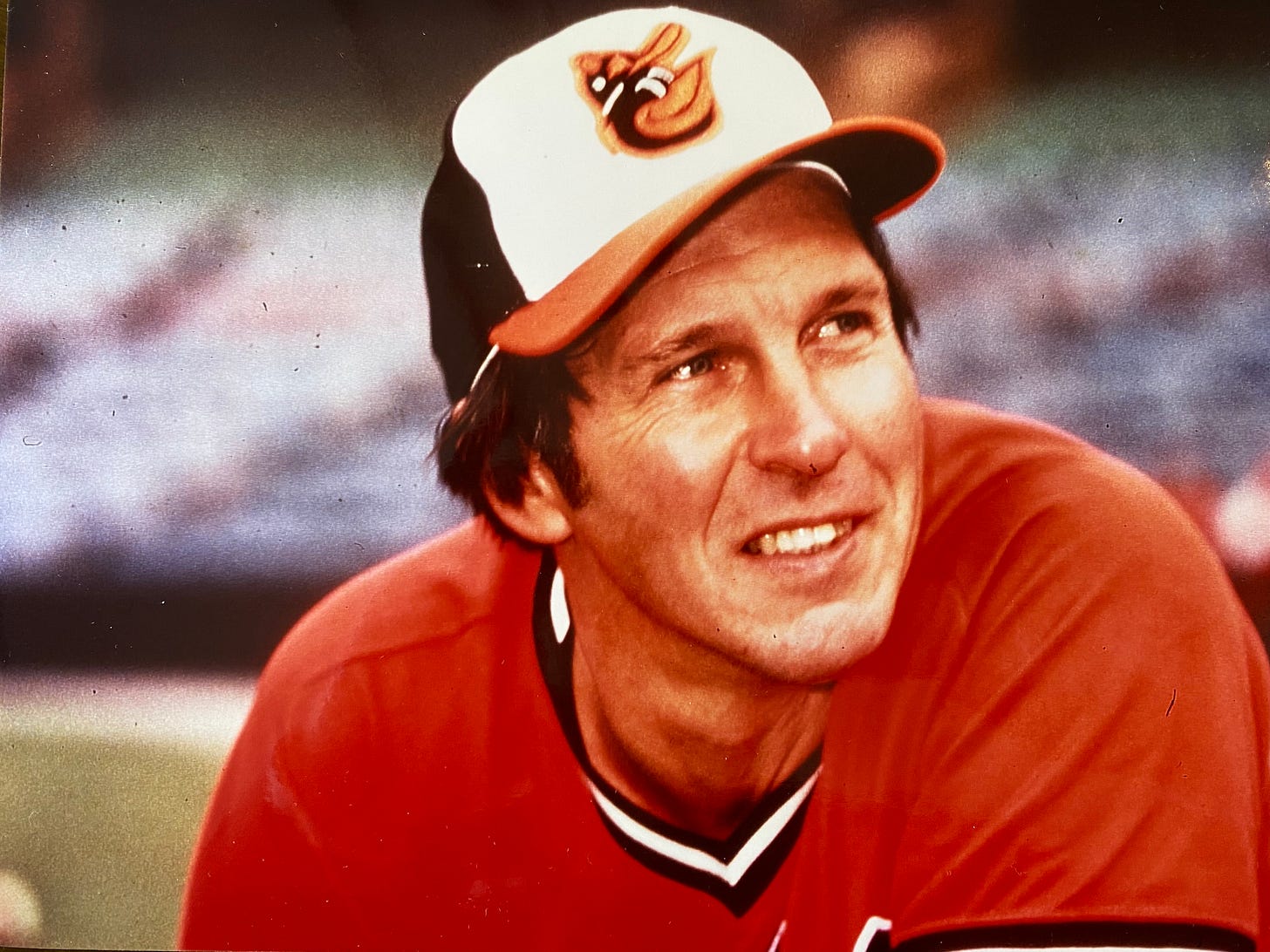The Bird Tapes Interview: Brooks Robinson
My audio series on Orioles history begins with a home run, nearly two hours of conversation with the Hall of Fame third baseman.
To publish my oral history of the Baltimore Orioles in 2001, I interviewed nearly 90 players, managers, front office executives, broadcasters, scouts and others.
Brooks Robinson, the Hall of Fame third baseman, was the only one who sat for two interviews, one in the fall of 1999 and another in the spring of 2000 as I neared the end of my reporting journey for the book.
There was just so much ground to cover that I knew we couldn’t get to it all in one sitting.
Brooks kindly indulged my request for one chunk of his time and then another chunk. Between the two interviews, both of which took place at Oriole Park at Camden Yards, he spoke to me for nearly two hours on a range of topics that included his early years in the game, his influences, the Orioles’ (and his) best and lowest World Series moments, his heavy involvement in the baseball labor movement and whether his roots in Little Rock, Arkansas impacted his relationships with Black teammates.
A quarter-century later, you can now hear this vintage interview, which I’ve broken into nine parts (see below) to make it easier to consume. It’s the inaugural episode of The Bird Tapes, my audio series on Orioles history.
Like each of the many vintage interviews that will be posted (spoiler alert: the next one is with the Orioles’ first play-by-play radio broadcaster, a legendary baseball voice), it is premium content, available only to paid subscribers. I’ve made Part 1 available to all so you can check it out. Full disclosure, the paid subscriptions, which I’m receiving and greatly appreciate, make it easier for me to go through the paces of making these interviews available. Paid subscribers can also participate in the Bird Tapes chat, which can be accessed via the project’s home page and on the Substack app. I’ll start the chat with a few of my takeaways from the Brooks interview. Please join in!
OK, on to Brooks.
To set the scene, when we’re conversing in 1999 and 2000, he is in his early sixties, a little more than two decades removed from the end of his playing career. He is no longer working the team’s TV broadcasts, and in fact, as he relates in the interview, he doesn’t have any role with the team at the moment, much to his chagrin.
He begins at the beginning in Part 1, with the story of how and why he signed with the Orioles — as a second baseman. Some helpful background: When he signed in 1955, baseball was still a decade away from instituting a draft, meaning anyone could sign with any team. The sport sought a semblance of control with a “Bonus Baby” rule. If you signed for more than $4,000, you had to be on the major league roster for two years. It was a terrible rule that forced young players into the majors far too soon, ruining many careers. Paul Richards, the Orioles’ general manager (and manager) in the 1950s, signed young players such as Wayne Causey and Jim Pyburn to bonus-baby deals. Brooks wisely elected not to go that route, enabling him to start his pro career in York, Pennsylvania, before joining the Orioles late in the 1955 season. But he still got into hot water, as he relates in a little-known story.
Here is Part 1:
Keep reading with a 7-day free trial
Subscribe to The Bird Tapes to keep reading this post and get 7 days of free access to the full post archives.






